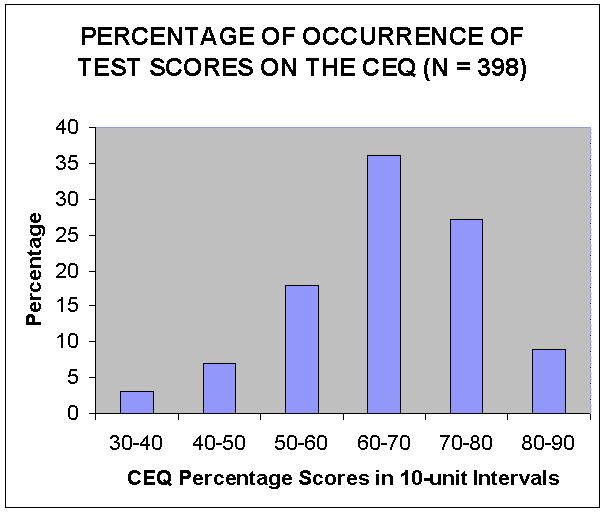BETTER COACHING FROM BETTER DECISIONS
TOPIC CONTROL PAGE

TOPIC 13
THE COACH EVALUATION QUESTIONNAIRE
To activate a lecture module, click on the appropriate link below.
LECTURE MODULES
Click here for lecture content of Part 1 of Topic 13.
COACH EVALUATION QUESTIONNAIRE (CEQ) CONTENT
- The coach is dedicated to the sport.
- The coach is patient.
- The coach communicates with the athletes.
- The coach uses abusive and foul language.
- The coach dresses appropriately, setting a good example for athletes to follow.
- The coach is a source of motivation.
- The coach's judgment is based on reasoning and/or is well thought-out.
- The coach is strict.
- The coach gives attention to each athlete.
- The coach encourages athletes even after a loss or defeat in competition.
- The coach's physical appearance sets a good example for the athletes.
- The coach has a sense of humor.
- I feel that I can trust the coach.
- I like the coach.
- I respect the coach.
- The coach is interested in me as a person.
- The coach finds ways to make all the athletes feel good about themselves.
- At meetings of athletes, the coach gives everyone a chance to make their opinions known.
- The coach sets a positive example during competitions.
- The coach's conduct toward athletes at competitions is sportsmanlike.
- The coach's conduct toward officials at competitions is sportsmanlike.
- The coach encourages social activities for the athletes.
- The coach is interested in the athlete's schoolwork or occupation.
- The coach provides training sessions that are organized.
- The coach is in command during practice.
- The coach is concerned about the health and safety of the athletes during practice.
- The coach makes the best use of the time available for practice.
- The coach interacts with each athlete at training.
- The coach encourages athletes to keep logbooks so they can measure their own improvement.
- The coach makes sure the athletes are prepared physically for each competition.
- The coach's instructions are easily understood.
- The goals that the coach sets for the athletes are possible to achieve.
- After a performance, the coach indicates a good part of the performance but also points out areas that could be improved upon.
- The coach knows how to teach difficult skills.
- The coach attends clinics and workshops to stay abreast of new coaching methods.
- The coach knows when to use discipline and when not to.

Reference: Rushall, B. S. (1994). The assessment of coaching effectivness. Spring Valley, CA: Sports Science Associates. For more information and details about the book and its contents click here.
Return to Workshop Control Page.

![]()

![]()